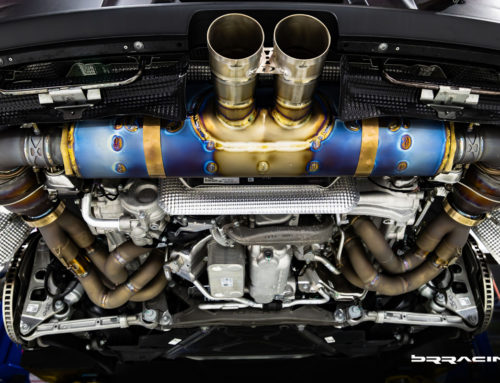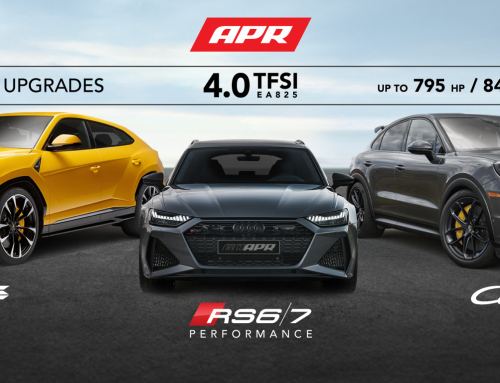When we started BRracing, we positioned ourselves to be a better alternative than the dealer. Better service, better experience, better or bigger scope of services, less expensive, more convenient, more accessible, more personable, and more. As part of that, we wanted our customers to feel that we took as good or better care of their car. We wanted them to have full confidence, full trust.
Therefore, one of the early choices was what fluids to we use and offer – engine oil, brake fluid, coolant, power steeering fluid, transmission fluid, differntial fluid, and more. To make the choice easy, we started with a base line of using the same fluids as the dealer or car manufacturer. If you had confidence in them, then you could have confidence w us.
When we started our Motorsport division (2011), we now needed to look farther, and needed to provide the best solution period. Reliability, longevity, lack of wear, additional performance even, those were the key requirements for the Motorsport side. That is going from the baseline, and moving beyond. Since we started our Motorsports program with customers running in “spec” series, if we could find an advantage as well, even better.
We then started to encounter a change in philosophy from the dealers. They weren’t picking the best fluids, they were partnering w fluid manufacturers, making deals, to reduce their service costs. If the longevity or reliability of the car went down, they didn’t care.
That showed itself first to us when Audi moved away from their standard locally to Pennzoil engine oils. I couldn’t find any test that showed Pennzoil to be better….in fact, they showed up on the lower end of the scale. When I asked them why the switch, they replied that they were now owned by Penske, and Penske is the distributor of Pennzoil, so they were now directed to use all Pennzoil products.
I didn’t find that in the best interest of the customer, nor the car. It was during this same period of time (2007 – 2011) that Audi started to demonstrate issues with their engines on oil consumption (most notably the CAEB engine). So, with this, we started to evaluate different oil options. We looked at MOTUL, Joe Gibbs Racing, Redline, Mobil1 and some others. Due to the long term commitment to us by our customers, we could also evaluate and build a database of what oils worked best for the variety of use cases. We also read up on the base materials used in most synthetics, and to determine if their was any difference really…..or were they just oils?
We set up meetings w the product managers / sales engineers of each of the products, and educated ourselves as best as we could. We reached out to our other key Motorsports partners and friends, and polled them, what data did they have to back up their decisions on fluids?
Again, as time marched on, another car manufacturer made another fluid decision. BMW had long used Castrol. There was a lot of debate about the value or worthiness of Castrol, but BMW had defined another viscosity blend for their “M” cars w the 10w60 engine oil….that won them some brownie points. Then, in 2013, BMW decided to randomly drop their relationship with Castrol, and now partnered with Shell. OK, peel the onion here a little more, and Shell is owned by Pennzoil, and Shell fluids are nothing but Pennzoil fluid rebranded.
This is the straw that “broke the camels back” in our view. Their are lots of objectives and reasons that car manufacturers pick their partners, but we didn’t find any press release for either Audi or BMW where they stated they had made the change to improve the results.
That broke our position as a shop…they were making decisions that we could not find in the best interest of our customers. With the data we had been collecting now for several years, we decided to move in a different direction….we chose MOTUL as our fluid supplier for all our customer applications (and no, we don’t have any special relationship with MOTUL in any way, no special discounts, no volume deals, no sponsorship). We had found that the MOTUL engine oils we were using for our Audi and MINI Cooper customers had resulted in less oil consumption, equal or better fuel mileage, oil sampling showed less engine wear….all wins in our view. On the Motorsport side, we found several other benefits with their MOTUL Trophy fluids…we got more power (dyno results), engine oil temps were less, wear was less, differentials and transmissions were lasting longer. All wins.
So, who is MOTUL?

MOTUL Oil | Tradition of Excellence and Quality
There is no better way to prolong the life of an engine than to use quality lubrication. MOTUL Oil is a brand that understands this very well. Engine oil is much more than just a liquid you pour into your car every 10,000 miles (or whatever your oil change interval is).
It is the essence of performance, carefully crafted to be tensile, slick, and durable. MOTUL is one of the few companies that are at the very edge of engine oil development. This brand has been adopted by racing teams and luxury car manufacturers alike and for a good reason.
The History of MOTUL Oil
Much like every successful story, that of MOTUL has humble beginnings. The company was founded in New York in 1853. Back then, performance engines were just a figment of imagination. A vision that only a select few individuals shared. MOTUL from 150 years ago was a completely different company. Their main products were whale oil and whale oil derivatives, which were used to fuel lanterns, make soap, and even margarine.
MOTUL was owned by Rockefeller Group at one point, only to change hands and become officially known as the Swan Finch Company. This was when MOTUL began expanding the lubrication side of the business. The MOTUL we know today was born in 1932 when the Zaugg family bought the company and moved the entire operation to France. From that point on, MOTUL was known as the French brand.
It was under Zaugg’s leadership that this company made some of the most important advancements in the lubrication industry. Namely, they’ve made the world’s first multigrade motor oil, the world’s first semi-synthetic, and later, the world’s first 100% synthetic oil.
Performance in a Bottle
After propelling the automotive industry forward with its innovative lubricants and fluids, MOTUL quickly became a synonym for performance. The company got heavily involved in the world of racing. Going over their list of partnered racing events will reveal numerous well-known names. European Le Mans Series, FIA World Endurance Championship, Super GT, Moto GP, Isle of Man TT are just some of the places where you’ll find MOTUL’s banners along the track.

MOTUL has signed a partnership deal with BMW M Motorsports in January of 2020 (a little ironic now, in hind sight from our point of view). Not long after, the BMW Team RLL won the opening round at the IMSA WeatherTech SportsCar Championship in Daytona.
The fact that BMW M Motorsports has recognized MOTUL as a suitable partner for their endurance racing team speaks volumes about MOTUL’s fluids. No matter what BMW model you drive, you can rest assured that MOTUL’s oils will work great in your car. After all, if BMW M Motorsports is using MOTUL, you have nothing to worry about.
MOTUL’s oils, lubricants, and fluids are not only capable of withstanding the pressures of such high-stress races, but they were purpose-built to work under such gruesome conditions.
When every millisecond matters and speeds exceeds 200mph, there is no room for error. Proper engine lubrication is vital for both power and temperature management as nothing kills performance like excessive heat.
MOTUL fluids are perfectly capable of keeping your engine in perfect working condition even if you push your car to its limits. Each MOTUL lubricant is created to provide the most efficient and protective environment, so you won’t have to introduce more additives to improve results. They are fantastic straight out of the container.
Building Trust Through Consistency
The long track record of excellence has put this brand at the crosshairs of numerous racing teams and high-performance car manufacturers. After all, maintaining a high powered engine properly lubricated while it’s working at maximum load requires experience and innovation. Both of these are something MOTUL has in abundance.
Keeping up with the ever-evolving needs of modern motorsports is what drives MOTUL forward. One of their latest series of engine oils is a direct result of this close relationship the brand has with racing sports.
MOTUL Trophy 300V | When A Few Liters of Oil Makes All the Difference
MOTUL’s latest 300V series of synthetic engine oils are designed to offer peak performance at extreme temperatures. These oils are used in race cars as well as high-performance bikes. Based on ESTER Core technology, 300V is all about providing that competitive edge while reducing engine wear and oxidation due to high temperature.
ESTER Core technology allows the 300V oil to adhere to cylinder walls even when the engine is cold, preventing a lot of the damage that is caused by a cold engine starts. With that said, this particular oil can be beneficial to regular car owners who want to keep their motors working flawlessly on the road every day.
300V is a perfect example of racing technologies spilling over into the commercial products segment, where everyone can benefit from the innovation such oils bring to the table.
Regular Car Owner’s Dream
Despite continually researching and developing racing oils and lubricants, a massive part of MOTUL’s everyday operations is focused on the consumer market. This company has had a lot of success in designing oils that have improved the overall longevity and performance of engines. Therefore, it’s no surprise that MOTUL is on the recommended engine oils for many brands.
BMW Approved, Ferrari Certified
Over the years, MOTUL has become the oil of choice for many car manufacturers. The complete list of European brands includes BMW/Mini, Audi/VW Group, Ferrari, Volvo, Jaguar/Land Rover, Aston Martin, Ferrari/Maserati, Mercedes-Benz, and Fiat. With that said, MOTUL also offers a complete line of lubricants for Asian car brands as well.
MOTUL 8100, MOTUL SPECIFIC and MOTUL SPORTS Range of Oils
Most of the brands listed above recommend MOTUL’s 8100 series of fully synthetic engine oils (this is what BRracing uses for all our BMW, Audi, MINI Cooper, and Mercedes customers, for Porsche, we will use either Mobil1 or MOTUL, per customer desire). MOTUL 8100 combines a number of quality base oils that meet and exceed OEM requirements. This is a high-quality lubricant with a proven track record of consistency and performance. With this range of oils alone, MOTUL has given the rest of the industry something to think about when it comes to consumer-grade lubricants.
8100 series of oils come in a variety of flavors X-Clean (primarily for diesels), X-Cess, X-Power, and X-Max. While all of the 8100 offers excellent baseline performance, some of these versions are optimized to cater to different performance goals. For example, MOTUL X-Clean was designed to be used in petrol and diesel engines fitted with DPF filters. On the other hand, X-Power oils, like the 10w60, are meant to reduce wear in high-performance machines such as BMW M cars. Additionally, 8100 sports a complete Eco line of oils as well.
MOTUL’s 8100 series of oils carry different designations depending on the car manufacturer. Most BMW owners are likely to recognize the LL-01 and LL-04 line of fully synthetic oils. These were also used in Mercedes-Benz, where they carry the MB-Approval 229.5 designation. Porsche is also using this oil under the C30/A40 name.
Contrary to the 8100 range that can be used in a variety of car makes, MOTUL’s SPECIFIC line of oils is all about individual car models.
BMW owners will recognize the Specific LL-01 FE synthetic oils, which are known for their fuel economy-oriented performance. There’s also the Specific LL-12 FE and Specific LL-14 FE lubricants that match specific BMW OEM requirements and offer similar performance. 8100 Specific series are used by other car brands as well. Volvo recommends the RBSO-2AE oils while Land Rover and Jaguar advise their drivers to use STJLR 03.5004 and STJLR 51.5122. Similarly, Porsche and the rest of the VW Group list the MOTUL Specific 508 00/509 00 0W20 as their recommended OEM oil.
Lastly, there is the Sport line of oils designed for use in high power performance engines, including those with forced induction. These are ester-based oils that can handle the needs of high-HP turbo or supercharged motors, all while significantly reducing engine wear.
This company also offers a complete line of brake fluids, which are currently its top-selling product. MOTUL RBF 600 and RBF660 are known for their extremely high wet and dry boiling points, which makes them a perfect choice for track use in high-performance braking systems. On the other hand, MOTUL DOT 5.1 brake fluid brings some of that high-temperature handling to standard ABS systems. (As a side note, BRracing uses or has available over 7 different brake fluid options, depending on the application, need, budget of our customer, we still believe Endless and Brembo brake fluids are better than MOTUL’s RBF660).
MOTUL’s complete catalog includes a variety of coolants and antifreeze, transmission gear fluids, and much more. Their range of products is diverse but shares one thing in common – quality you can rely on.
Cutting Edge Manufacturing Processes
MOTUL oils, engine fluids, and lubricants are made in facilities all over the world. The company is continuously working on refining its manufacturing process to improve efficiency as well as maintain the quality of their products. Implementing such strict quality standards has allowed car owners to know precisely when they need to change their oil.
Oil change maintenance intervals for MOTUL oils differ based on the blend being used. The 300V high-performance engine oil is meant to be used for around 3,000 miles between oil changes. However, other oils from MOTUL’s product range will last much longer as they are designed for endurance.
More Recent Developments – Porsche and MOTUL
For MOTUL, sponsoring a team in motorsports goes beyond a simple decal and marketing effort, as the brand requires each technical partner to use and test their products on the track. These partnered teams use the same 100% synthetic race lubricants that customers can buy in stores, and any improvements found on the track translate to the entire product range. With new North American partnerships in IMSA with both BMW M Motorsport and Pfaff Motorsports, MOTUL has the perfect rolling laboratories to put items like their 300V, RBF 660, and gear oils through the paces.
In January, Pfaff Motorsports completed the Rolex 24 at Daytona with their No. 9 Porsche 911 GT3 R. Samples of the MOTUL 300V 0W40 used during the entire race were sent to an independent lab to see how a full day of racing has impacted the oil. See the results below from CAT, which show that the critical elements to protect the engine had no issues standing up to the heat and stress:

According to Alec Wolff, MOTUL’s Technical Manager, these tests “indicates the overall health of both the engine and the oil circulating inside it.
“The first thing we’ll look for is any metals being deposited into the oil,” he explains. “This gives us a pretty good idea of what could be wearing.”
High iron readings, for example, can be a sign of premature crankshaft or cylinder liner wear. High amounts of aluminum could mean an issue with the cylinder heads. Copper usually points toward bearings, while other elements like lead and silicon can come from environmental sources like fuel or even sand ingested into the intake.
The techs also look at the oil’s viscosity throughout the test. “One of the ways we can look at the general effectiveness of the oil in an analysis is to look at the V100 number, which is a measure of viscosity,” Wolff explains. “All weights of oil have a window of viscosity they they’re supposed to hit at a given temperature. Oil that’s broken down will typically be outside that ideal viscosity range that it was when new.”
These analyses will also look at the softer elements that make up the oil itself: things like manganese, calcium, zinc, magnesium and phosphorous. These elements are often part of the oil’s additive package and help give a base oil stock its specific physical and chemical characteristics, like altering its surface tension, isolating unwanted combustion byproducts and more

These positive results aren’t a surprise to MOTUL engineers, as MOTUL uses dyno-based simulations that run a Porsche GT3-spec engine through a preprogrammed use pattern over a set period to replicate race conditions during MOTUL 300V product development.
In fact, one of the company’s go-to tests is a simulation of the 24 Hours of Le Mans. During that single test, the engine is accelerated and decelerated against a load that duplicates repeated laps of Le Mans. A fully gimballed dyno rig even tilts and leans the engine to simulate g-loads experienced during cornering, acceleration and braking.
Data is captured constantly, in real time, throughout the test cycle. During the dyno tests, MOTUL monitors data such as horsepower and oil consumption. Highly stressed oils can break down under thermal and mechanical stresses, allowing their compound chemical components to again become individual elements.

“Shear strength is a huge key with racing oil,” Wolff explains. “The key is you want to maintain a film of oil between metal surfaces, obviously. It’s easy to do that if the oil is really thick, but you have to run bigger tolerances in the engine, and you lose real power to parasitic drag moving that thick oil around.”
Tightening up those tolerances puts more demands on the oil. “So, you want to run as low viscosity an oil as you can to cut the parasitic drag,” he continues, “but also to make that layer of lubrication between surfaces very thin, so you can have more precise tolerances. When you’re running things that tight, shear strength is a huge consideration, because the oil needs to maintain its structure to keep providing that barrier between metals.”
Ester Core technology found in the MOTUL 300V race oils provide that excellent shear strength and even has other inherent chemical properties that make them a good start for a high-load oil. The actual polarity of ester molecules attracts them to negative charged metal surfaces, which serves to further enhance the stability of the microscopic layer of liquid lubrication between surfaces.
It’s this level of technology, refined through years of racing development and success at tracks around the world, that give teams and drivers at all levels the confidence to trust MOTUL.
BRracing has been using MOTUL products for about 10 years now. We have serviced over 22,000 cars in our business lifetime (13 years)….we have never had any issues, and in fact, as mentioned before, we have improved the oil consumption (lower) and fuel economy of our customers cars. There is always a reason we do the things we do…to make it better for our customers.





Leave A Comment
You must be logged in to post a comment.